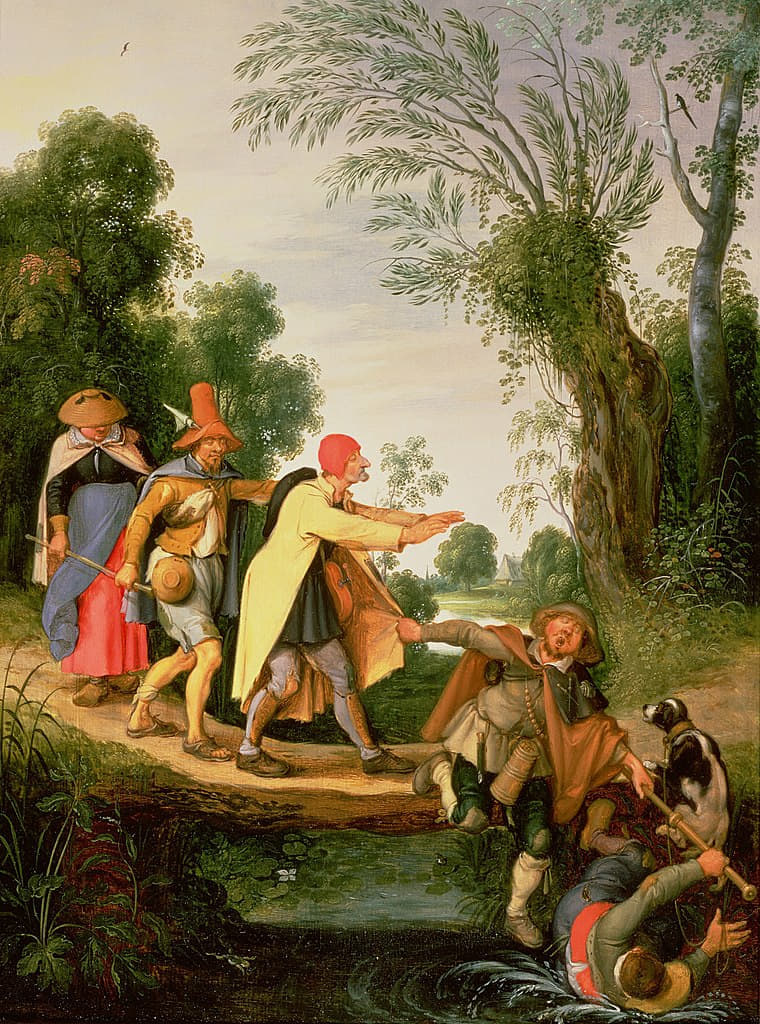We will not be laying bare any arcane mystery by pointing out that, since the essential quality of modern democracy is the legitimization of government by means of suffrage, power emanates from the persuasion of the voter, so that he who convinces wins. Once this obviousness has been established, we face, on the one hand, the challenge of analyzing what is most important in the democratic system, i.e., how consensus (i.e., majority) is achieved; which makes it possible to convert a given party’s preference into law. Once this has been done, it remains to be seen which individuals and groups are best adapted to this political ecosystem. Finally, and based on this examination, it is up to us to determine whether or not the design of the current democratic system encourages the most capable and virtuous to exercise power, or whether, 2500 years later, Diogenes’s assertion that lying is the currency of politics is correct.
Let us now take a step-by-step approach. Although given our relative delay in adopting the Anglo-Saxon model of liberal democracy, it is easy to fall into the Adamism of thinking that our political system has its own determining characteristics, which can drag us into the melancholy of frustration. It is enough to review the theoretical frameworks developed in the interwar period of the 20th century by Jewish-American intellectuals, such as Walter Lippmann and Edward Bernays, to see that their works became manuals for achieving and maintaining power through the ballot box.
Thus, concepts such as “public opinion” and “public relations,” which were coined by these authors, have become part of the lexicon of politics as euphemisms for “propaganda” and “manipulation of the masses.” Underlying these notions is the admission that since modern societies are increasingly complex, the maximum simplification of political discourse is essential—the infantilization of slogans—so that the complex can be explained to the population as if it were simple; and so that when the time comes to cast the vote, the voter does so convinced not only of doing so freely, but with a knowledge of the facts that emanates from understanding reality, thanks to the interpretation of it that has been transmitted by the politician, for whom the voter votes in the name of “those who constitute the invisible government that holds true power” (Bernays, 1928).
Lippman himself—author of the neologism “stereotype”—recognized that the metaphor of Plato’s shadow play in the cave was a faithful reflection of this state of affairs. This comparison being correct per se, the representation of the governed as mere spectators is insufficient, because it neglects the fact that members of society also participate actively, and often enthusiastically, in shaping the shadows that they then mistake for reality. This can be easily seen by getting on board any means of public transport, and seeing how mobile device users have become the product being sold, living in the absolute present; thus fulfilling to the letter that Marxian aphorism on the fetishism of commodities, according to which, when manufacturers create an object for the subject, they also create a subject for the object.
Perhaps the Romanian playwright Eugène Ionesco was best able to allegorize the situation of modern society in his 1958 play Rhinoceros, in which his protagonists are immersed in a sudden and absurd change that makes communication between them impossible; which ultimately becomes a voluntary act of conformism through a metamorphosis of the intellect which pushes them to repeat the ideas and slogans they hear, without bothering to reflect on their moral meaning and logical consequences. Ionesco shows us how difficult it is to live outside a given ideological framework, because to step outside it forces one to confront the complexity of the facts in the raw, without the fig leaf of synthetic certainties contained in ideology. Hence, in the underworld of virtual relationships, individuals tend to become rhinoceroses, reacting aggressively to any information that does not confirm or reinforce their mental frameworks, and is therefore perceived as a threat.
The paradox is that despite the illusory individualism of digital escapism, as in Ionesco’s play, people stop focusing on themselves, to immerse themselves in social distractions that make them lose personal focus, thus leaving them vulnerable to being manipulated without even being aware of it, thus joining a herd that is easy prey for those who influence the stories people receive about what is happening around them in a way that benefits the interests of the manipulator, through the formation of “public opinion” and the promotion of “public relations,” sewn into our lives with so few and transparent seams that we do not even notice the propaganda and censorship that weaves their stories together.
We wondered at the beginning of this essay if the current democratic system encourages the best to lead us. This does not seem to be the case—on the contrary. We often see that, in the absence of motivating proposals, political candidates resort to discrediting their opponents, with the sole purpose of making the opponent even less attractive than themselves in the eyes of the voter, generating vicious circles in which voter apathy encourages politicians to increase polarity and manipulation of the electorate, with all the means that the system itself puts at their disposal. Consequently, it does not seem that all this has a greater virtuality than to produce the perverse effect of favoring a negative natural selection; that of those aspiring politicians immune to opprobrium. Thus, far from encouraging the best to stand out, our system of manufacturing consent gives a competitive advantage to those who move better in cynicism and lies, making the lamp of Diogenes as necessary now as it was then.
Santiago Mondejar Flores is a consultant, lecturer and columnist on geopolitics and international political economy. This article appears courtesy of Posmodernia.
Featured: “The Parable of the Blind,” by Sebastiaen Vrancx, ca. 17th century.
